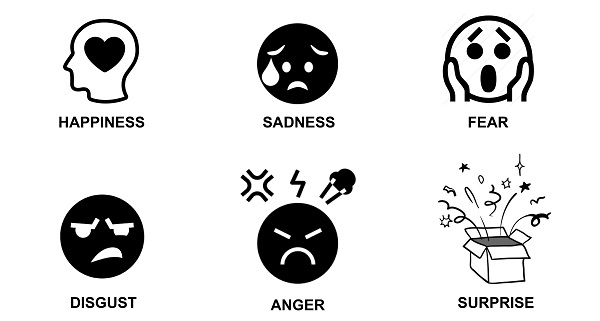Caregiving can be an emotional roller coaster, with ups and downs and everything in between. Some days you will feel in control, while on others days you will feel overwhelmed and uncertain. Managing your emotions requires certain skill but, if successful in learning these techniques caregivers can reduce their stress levels and better appreciate the caregiving journey.
Since October is National Emotional Wellness Month, our blog this month focuses on how caregivers can build emotional intelligence (EQ) and use it to better care for themselves as well as their loved one.1
What is emotional intelligence?
According to Dr. Travis Bradbury, co-author of “Emotional Intelligence 2.0” and a leading authority on improving workplace performance, emotional intelligence (EQ) is the ability to identify emotions in yourself and others and develop appropriate and healthy responses to them.
What makes EQ different from general intelligence (IQ) is that scientists believe IQ, similar to personalities, are mostly fixed throughout adult life, whereas EQ can be improved and built upon. Interestingly, some people with advanced IQs lack the EQ to deal effectively with challenging or complex relationships. History shows us that geniuses (Beethoven, Einstein, Margaret Mead) often struggled in their personal relationships. Many psychologists believe it is because highly intelligent people seek data, logic and rational thought – all the things emotions defy. We can be persuaded by reason but we mostly act based on emotions.
In the 1970s, psychologist Paul Eckman identified six basic emotions relevant to all human cultures:

However, a few years ago researchers at UC Berkeley Greater Good Science Center expanded the six basic emotions to 27 different categories, including anxiety, confusion and relief, and published their findings in Proceedings of National Academy of Sciences.2 The researchers realized there are gradients in our basic emotions which may point to why caregivers feel a gamut of emotions. Other research has shown that increasing EQ decreases stress levels, especially the chronic stress that often negatively impacts caregiver wellness.3
How caregivers can improve their EQ
Many caregivers can relate to the feelings identified by researchers but how do you improve EQ? Following are the eight elements of an emotionally intelligent (and healthier) caregiver:
1. Be curious about people
This is really about having empathy which is the gateway to EQ. Learning what may lie behind a behavior or emotional response helps caregivers calibrate their reaction to an emotionally charged situation.
2. Embrace change
Fear is typically based on a lack of control and can be paralyzing. Being flexible diffuses fear and allows for adaptability which renews control. This is about the ability to understand triggers for yourself or someone else and then pivoting to a more positive experience.
3. Understand your strengths and weaknesses
Being self-aware and rising to your potential by recognizing or admitting to vulnerabilities is a core element of EQ. Sometimes this means asking others how they see you and being able to accept critical feedback.
4. Practice “no”
Perhaps one of the most difficult things caregivers have to learn are boundaries. Being able to say “no” to yourself and others becomes key to EQ. “No” often creates guilt but that is a misplaced emotion. Guilt is based on something intentional that harmed others. Caregiver guilt is based on a flawed perception of having to be perfect and never embracing personal needs. This goes back to #3 – guilt is a weakness; balance and self-care are strengths.
5. Give without expectation
Learning how to help someone or provide support without expecting anything in return creates resiliency and gratitude because the relationship is not transactional.
6. Neutralize toxic people
Understand the “why” of things and hone the ability to problem-solve based on that knowledge.
7. Use mindfulness
Finding calm in the chaos is a skill obtained from taking a breath, pausing and allowing your mind to clear the clutter inside.
8. Don’t seek perfection
We all try to do our best for our loved ones, but this process can compromise our own needs. Remove judgment, analysis and comparisons in your performance as a caregiver – just let the love in and the guilt or negative emotions out. Find balance which includes both compassion for yourself as well as your loved one.
One Technique Every Week – Caregiver Monday Is the Answer to Building EQ
Developing these skills is not easy. It takes practice and sometimes guidance which is why our Caregiver Monday exercises will help individual caregivers build their EQ every week. Check them all out – new ideas every Monday for better caregiver wellness. And, if you are an organization dedicated to caregiver self-care, our Caregiver Monday Ambassador, Sherri Snelling, is also available for workshops and webinars (online or in-person) to help kick-off a 52-week road to wellness for family caregivers. Contact us for more information at: sherri@caregivingclub.com.
References
1 Birks, Y. F., & Watt, I. S. (2007). Emotional intelligence and patient-centered care. Journal of the Royal society of medicine, 100(8), 368-374.
2 Cowen, A. S., & Keltner, D. (2017). Self-report captures 27 distinct categories of emotion bridged by continuous gradients. Proceedings of the National Academy of Sciences, 114(38), E7900-E7909.
3 Yamani, N., Shahabi, M., & Haghani, F. (2014). The relationship between emotional intelligence and job stress in the faculty of medicine in Isfahan University of Medical Sciences. Journal of advances in medical education & professionalism, 2(1), 20–26.
©2020 Sherri Snelling

Dear Sherri,
My name is Clarissa and I’m a research coordinator at UC, Berkeley. I was so excited reading this article and seeing your reference to Paul Eckman! For over 20 years, my lab has studied empathic accuracy and emotional regulation in patients with dementia and their caregivers, which Paul Eckaman collaborated on with my PI, Robert Levenson!
For 20 years we had been focusing on patients, but we are now moving towards focusing on caregivers as caregivers are a hugely under-served population that need to be provided for to! I would love to invite you and your readers to learn about our current research project testing in-home assistive technology for caregivers to those with dementia. This study is funded by the National Institute of Health and costs absolutely nothing to participate. Our study is designed to help caregivers and not rob them of their valuable time.
Please, if any of you reading this are interested in learning more, visit our website at https://research.presencefamily.com.
We would love to have you join over 300 caregivers who are helping contribute to our research and the caregiver community as a whole!
Clarissa – love the work you are doing! Sorry it took me so long to reply. I have posted your comment to our recent blog and thank you for reaching out. Best of luck with your research and please keep me apprised of when it is published. Take care! Sherri